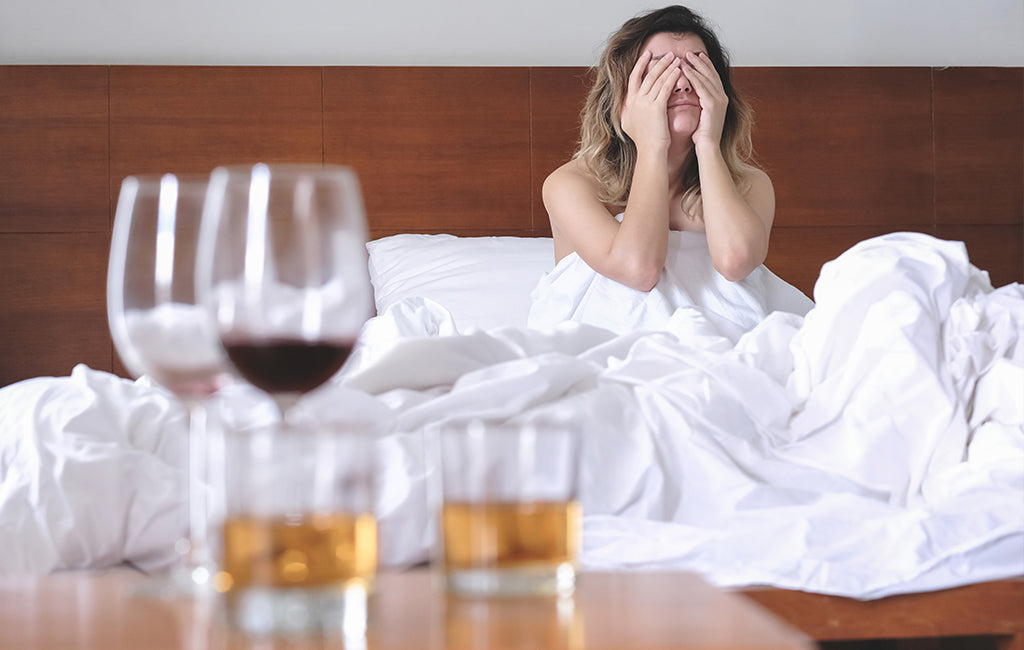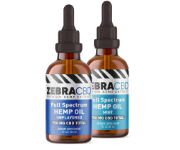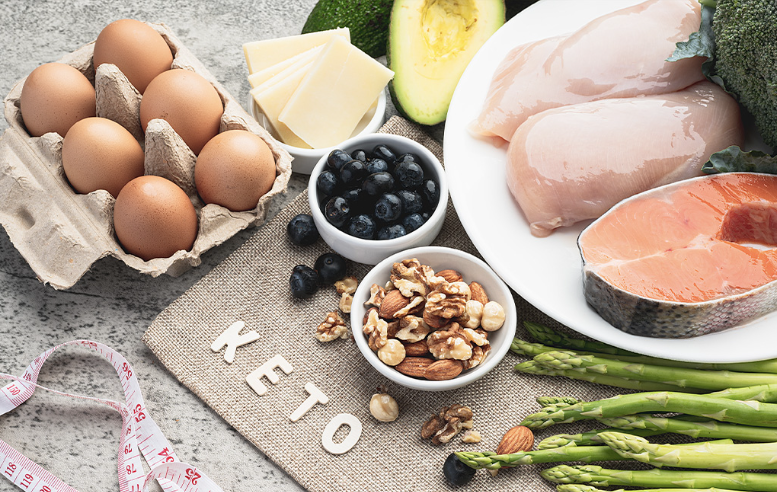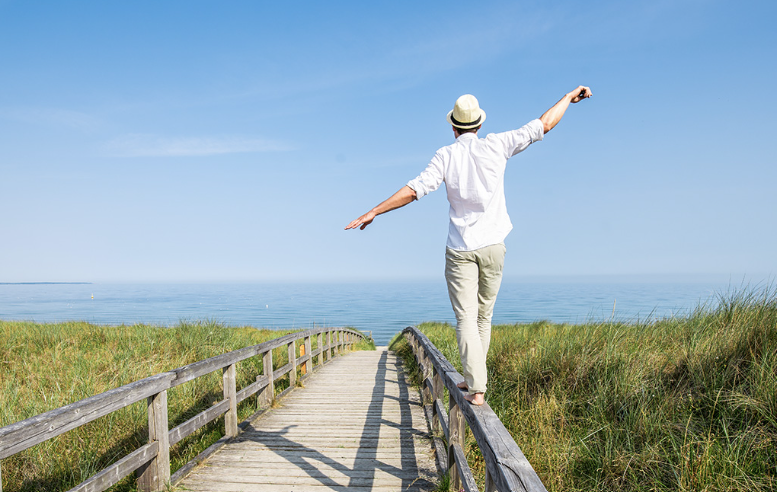
There’s nothing enjoyable about a hangover: Hangovers can throw your body into a tailspin. If you’ve just awoken after a night of heavy drinking, your head might be pounding, you might have the shakes or your mood might be at an all-time low.
Although there are no proven cures for hangovers, there are ways to mitigate symptoms. Often trusted to support full-body wellness and mental ease, CBD may be your next go-to method to care for an unwelcome hangover.
Depending on how you want to combat your hangover symptoms, it may be beneficial to cut out the psychotropic effects of THC in favor of the non-psychoactive effects of CBD.
Can you use CBD for hangover help? Read on to better understand what a hangover is and how CBD might come into play.
What Is a Hangover?
Have you ever felt dizzy the morning after a beer-heavy night out? Are you sometimes hit by a wave of stomach discomfort several hours after a few glasses of wine? Though there’s no strict definition, what you’re experiencing is likely a hangover.
A hangover is the discomfort your body may feel the day after consuming alcohol. Stomach discomfort and dizziness may be accompanied by confusion, heart palpitations, nervousness or chills. It’s also important to note that a hangover can feature psychological symptoms like mood swings and irritability. However, it is not a medical condition.
What Causes a Hangover?
Although the exact cause of a hangover has yet to be confirmed, researchers speculate that drinking-related discomfort has to do with your body’s chemical response to alcohol. Here are a few ways alcohol can affect your system, potentially leading to hangover symptoms:
- Dehydration – Alcohol is categorized as a diuretic, meaning it makes you pee a lot and can result in significant water loss. You can also become dehydrated from vomiting from the effects of drinking. Dehydration can lead to grogginess, brain fog and fatigue, among other ills.
- Stomach irritation – Alcohol can irritate your stomach lining. The alcohol you consume is often highly acidic. Drinking can also increase the production of stomach acid, leading to abrasion and inflammation.
- Electrolyte loss – Electrolytes are a series of compounds like sodium and potassium that are essential to your body’s performance. These minerals are naturally lost through sweat or urine. Increased urination encouraged by alcohol consumption can lead to high electrolyte loss, causing cramps and aches that leave you feeling fatigued.
- Low blood sugar – Blood sugar is your body’s energy source, supplied by the food you eat. Drinking can cause an increase in insulin production, a hormone that helps regulate your blood sugar. This process can quickly lower blood sugar levels and leave you faint and feeling unwell.
- Lack of deep sleep – The National Institute on Alcohol Abuse and Alcoholism (NIH) suggests that though alcohol may make you fall asleep quicker, that sleep is often restless and interrupted. A lack of sleep is often a key contributor to headaches and overall malaise.
The Role of Acetaldehyde in Hangovers
Research distributed by U.S. Poison Control also suggests that another main culprit of the hangover might be the chemical acetaldehyde.
When alcohol is consumed, your body needs to break it down. Alcohol moves through your body and into the liver. There, the alcohol is broken down by enzymes and metabolized. Think of enzymes as your body’s own recycle team, breaking down molecules and re-using their parts for other body functions.
The body produces acetaldehyde as a byproduct of the reactions that occur to help metabolize alcohol. Although unconfirmed as a hangover cause, acetaldehyde is a toxin that can damage cell DNA and prevent repair. To paint a picture, this chemical is often present in products like disinfectants and perfumes.
Hangover Symptoms
Hangovers can affect individuals differently. Symptoms can appear in various forms, depending on your body’s build.
Some studies suggest individuals with lower weights experience more severe hangovers. Researchers also confirm that your body takes longer to metabolize alcohol as you age, often resulting in prolonged hangover experiences.
Overall, if you’ve experienced or are experiencing a hangover, you’ll probably recognize some of these common symptoms:
- Fatigue
- Restless sleep
- Body aches and weakness
- Stomach discomfort
- Inflammation
- Shaking
- Emotional distress
- Dizziness
- Red eyes
- Headache
- Light or sound sensitivity
- Memory loss
- Lack of concentration
How Long Does a Hangover Last?
Research suggests the standard hangover lasts an average of 24 hours.
A hangover occurs as your blood alcohol content moves toward zero. Studies agree that, on average, it takes about one hour for a body to metabolize a standard shot or 1.5 ounces of liquor. This amount is also equivalent to 12 ounces of 5% beer or one 5-ounce glass of wine.
Unfortunately, there is no scientific evidence for a hangover cure that speeds up or eliminates this process.
How to Prevent a Hangover
Before learning how to help remedy your existing hangover, it's important to note that prevention is the best method.
If you're planning a night that involves alcohol consumption, consider these easy preventative measures to avoid or lessen the effects of a future hangover:
- Avoid overconsumption – Easier said than done; keeping track of how much alcohol enters your system can make all the difference. Remember that it will take the liver about one hour on average to process the average drink.
- Avoid wine and darker alcoholic choices – The National Institute on Alcohol Abuse and Alcoholism (NIC) suggests that two substances — congeners, found in dark spirits, and sulfates found in wine — may contribute to hangover symptoms like headaches.
- Eat before drinking – Drinking on an empty stomach can cause significant irritation to your gastric lining. A full stomach will also help slow the rate at which your body absorbs alcohol, giving your liver a break.
- Stay hydrated – Like coffee, alcohol is a diuretic that encourages excess urination and can lead to significant dehydration. Mix in a glass of water or other liquid between drinks or increase your water intake to compensate before your head hits the pillow.
How to Care For a Hangover
Although prevention and time are the only two sure-fire cures for a hangover, there aremethods to help mitigate those unpleasant symptoms in the meantime.
Consider these popular methods:
- Fluids – One of the leading causes of hangovers may be dehydration. Once you feel a headache coming on, grab a water bottle or an electrolyte beverage. Keeping your body hydrated can mitigate a hangover’s effects as your body expels those toxins.
- Carbohydrates – Often, the last thing you want to do after a night of heavy drinking is put anything in your stomach. Alcohol can lower blood sugar, your brain's main energy source. Consider some simple foods like bread or a banana to fight fatigue without irritation.
- Vitamin intake – Replenishing your vitamin supply is never a bad idea when restoring balance to your body. Zinc and vitamin B, found in foods like eggs, greens and nuts, are two essentials that can be easy additions to a hangover concoction.
- Caffeine – Like alcohol, coffee and tea are diuretics that dehydrate, so heavy consumption is not recommended. However, small amounts of caffeine may help open blood vessels to relieve pressure-causing headaches or help boost energy levels.
- Alleviation alternatives – Most hangovers are characterized by body aches. Anti-inflammatory drugs like aspirin or ibuprofen may provide relief for headaches or overall body discomfort. CBD is another option that may help ease irritation or soreness.
Cannabis and Hangovers
Cannabis is a cannabinoid drug derived from the leaves or flowers of cannabis plants. The substance has long been used to combat multiple manifestations of bodily stress. In the case of a hangover, your body may experience both physical and emotional distress, which cannabis may help to ease.
That said, research suggests that the compounds in cannabis, a component derived from the cannabis plant, interact with the endocannabinoid system (ECS), a messenger network that can impact the following:
- Mood
- Appetite
- Sleep
Cannabis compounds, called phytocannabinoids, often shortened to cannabinoids, are similar to the neurotransmitters that help operate the ECS in humans, called endocannabinoids.
CBD vs. THC for Hangovers
Cannabis is comprised of various cannabinoids and significant quantities of the following compounds:
- CBD – CBD or cannabidiol is a non-psychoactive compound that can promote feelings of relaxation.
- THC – THC, or tetrahydrocannabinol, is a psychotropic compound that can induce a euphoric feeling of being “high.”
Like alcohol, these compounds may significantly affect your mental and physical well-being. Depending on how you want to combat your hangover symptoms, it may be beneficial to cut out the psychotropic effects of THC in favor of the non-psychoactive effects of CBD.
Your body works best in balance. During a hangover, it may be best to prioritize both mental and physical homeostasis to help your body focus on performing its functions. CBD can offer some significant stabilizing benefits.
CBD For Hangover Help: Possible Benefits
Users have found that CBD may be effective in supporting:
- Feelings of calmness
- Balanced mood
- Muscle soreness relief
- Improved sleep
The above effects may contribute to some hangover relief. Consider CBD hangover relief as an option that may mitigate the following hangover symptoms:
- Emotional distress – CBD is often used to boost mood and regulate restless emotions. Some individuals report that hangovers can result in bouts of irritability. CBD may be an effective coping mechanism while your body regulates itself.
- Sleeplessness – A leading cause of hangover symptoms is believed to be the lack of good sleep that accompanies a drinking binge. Although CBD won’t make you tired, it can help relax your agitated body into sleep, which can promote general health. If you need an extra boost throughout the day, you may consider taking products like CBD gummies for energy to help recover from a hangover, especially if you’re headed to the office for work.
- Ache and fatigue – Inflammation-led discomfort caused by alcohol consumption can be a mainstay of a hangover. CBD has been used for years for its potential anti-inflammatory properties to combat aching muscles and get you moving again.
- Stomach discomfort – Although not confirmed as a solution to gastrointestinal irritation, CBD may reduce inflammation and encourage appetite on your road to recovery.
How Much CBD Should I Take?
The FDA has not yet confirmed any dosage suggestions. While there’s no key to CBD consumption, like any substance, CBD can affect every body type differently. When determining dosage, heed the following:
- Start with a low dose – If you’re new to CBD, take a small dose to begin. Especially with a hangover, you want to maintain your body’s balance, not throw it off.
- Consider your body type – Like most substances, weight can indicate whether you need a higher or lower dose to gain the desired effect. As a rule of thumb, bodies of heavier weight will generally need a higher concentration to achieve the same effects as those with lighter builds.
- Monitor impact – Before adding CBD to your hangover regime, track how your body responds to different doses over a longer period of time. This method is a great way to get familiar with your body and identify how CBD may best benefit you.
- Access consumption methods – CBD can be obtained in multiple forms: as a digestive, an inhalant, or a topical oil. Digestives like pills or tablets may affect the body at a quicker rate as opposed to topical options with more localized approaches.
It’s also important to note that there are three different kinds of CBD:
- Full-spectrum – This version contains THC, CBD and other cannabinoids present in the cannabis plant.
- Broad-spectrum – This type contains CBD and other cannabinoids from the cannabis plant, excluding THC.
- Isolate – This option offers only CBD.
Isolate may be the most suitable when it comes to battling hangover symptoms. This purer form of CBD can offer all the benefits without the psychoactive effects of THC, which could exacerbate similar psycho-hangover symptoms like confusion or agitation.
Hamper Hangovers With Zebra CBD, Your CBD Expert
CBD may prove helpful in dealing with the lingering symptoms of a hangover and supporting both emotional and physical wellness. If you’re thinking about incorporating CBD into your hangover recovery regime, let Zebra help you identify the best CBD option for you.
CBD’s benefits also extend to other areas like sleep and appetite stimulation. CBD and melatonin may have more in common than you’d think when it comes to using them as sleep aids.
Additionally, you can take CBD for appetite stimulation to help with appetite loss. If your hangover feels like it’s turning into a slight cold, you may be wondering, is CBD oil good for colds? CBD may even help you fight the symptoms of the cold.
Zebra CBD is your trusted shop for natural feel-good CBD products created to help restore your body’s natural balance. Our curated selection of CBD tablets, CBD gummy products, CBD oil products and CBD topicals comes with transparent labels and thoughtful instructions.
Feel your best with Zebra CBD.
Sources:
CFA. Does CBD Oil Help With Hangovers? https://cfah.org/cbd-for-hangover/
Healthline. CBD for Hangovers: Can It Help You Recover? https://www.healthline.com/health/cbd-for-hangover
Cleveland Clinic. Hangover: Symptoms, Remedies, Cures, Prevention. https://my.clevelandclinic.org/health/diseases/16627-hangover
Harvard Health. 7 Steps to Cure Your Hangover. https://www.health.harvard.edu/staying-healthy/7-steps-to-cure-your-hangover-and-ginkgo-biloba-whats-the-verdict
U.S. Poison Control, What is a Hangover and Can it be Cured? https://www.poison.org/articles/what-is-a-hangover-and-can-it-be-cured
Drinkaware. How to “cure” a hangover. https://www.drinkaware.co.uk/facts/health-effects-of-alcohol/hangovers/hangover-cure-and-prevention










